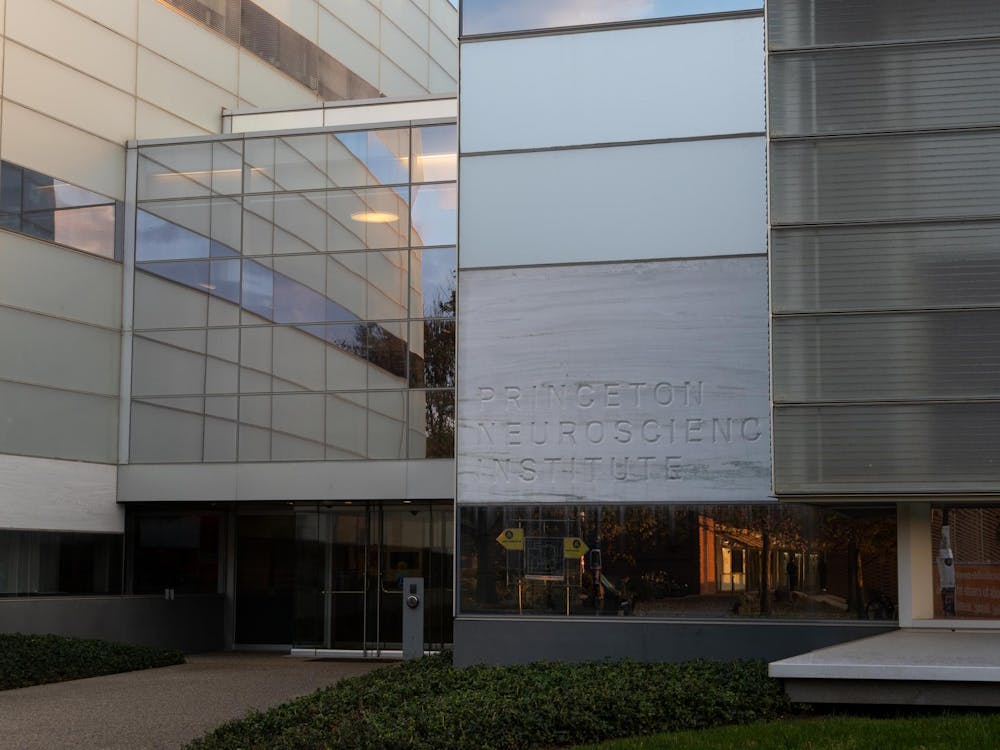For those of us taking our coursework remotely, this fall break likely came and went, noticeable only as a two-day reprieve from classes and a moment’s peace from cramming for midterms. But for the 300-ish undergraduate and 1,000-ish graduate students still holding down the Orange Fort, fall break was a gentle reminder that leaving the University is possible, but that doing so comes with a certain element of risk.
While New Jersey seems to be swan diving into its second wave of coronavirus cases, to those of us blessed with twice-weekly testing, real-time health information, and — if we’re daring enough to leave — gratis quarantine provisions upon our return, things here on campus seem relatively copacetic. University Health Services has been a well-oiled machine, and despite initial misfires, the University’s coronavirus response has been laudably decisive and anchored in science.
The University has, in a word, treated the virus seriously.
I can’t help but wonder why COVID-19 gets such serious attention while other crises, notably climate change, do not. As a member of Divest Princeton, my peers and I have been at it since February persuading the University administration to divest Princeton’s endowment from fossil fuel assets, cut ties with companies such as Exxon and BP, and commit to more ethical, sustainable investments going forward.
Their response has been equal parts silent and the belabored, philosophic navel gazing that all divestment campaigns are forced to endure:
“Are the University’s values at stake here?”
“And what are Princeton’s values really?”
“Who should we consult to direct us toward who to consult to establish consensus that Princeton’s values (whatever they are) are truly at stake?”

Thoroughness and a fidelity to the University’s core principles (if not principals) are important considerations, surely, but can we imagine McCosh Health Center going through a similar ringer just to put COVID-19 on the trustees’ radar?
It is good that the University has taken a no-expenses-spared approach to keeping people safe during the pandemic, but by the same logic, it should also be helping its students, faculty, and staff who come from states and countries ravaged by climate fires, extreme heat, floods, hurricanes, and a litany of other unnatural disasters. Some have been forced to migrate because of climate change and have, in that dislocation, faced new threats of food insecurity, violence, and yes, infectious disease.
Does the University not value diversity and global equity? Does the University not value the safety of its community, both here in New Jersey and around the world? Of course it does, which is why its cognitive dissonance on climate change has been so utterly exasperating.
It is not enough to research green technologies. It is not enough to have campus sustainability plans that aim for net-zero emissions 26 years from now. The University must do all in its power to atone for past ethical failures and combat our suicidal development of new and dirtier fossil fuels. Princeton must divest from this industry.

And just as the University would not tolerate disinformation regarding vaccines or the root causes of coronavirus emanating from its campus, so must it fight conspiracies that minimize the dangers of climate change and promote fanciful, silver-bullet cures. But Princeton conducts climate research with conspiracy-peddlers like Exxon, calling them “good partners” who “challenge” the University with their differences of opinion. The University must disassociate from the Exxons of the world, who despite knowing the harms of their products plan to substantially scale up emissions in the coming decades.
The University’s insistence on treating these companies with respect, bringing them in as “part of the solution,” is like having your COVID-positive neighbor over for dinner so they can give you their “insider’s perspective” on the disease. Sure, you might learn something — but at what cost?
The University sacrifices its credibility associating with “partners” whose leaked documents describe in detail plans to co-opt universities with strategically-allocated research funding. Beyond the ethical and reputational implications of prolonging these ties, the University’s investments in fossil fuel enable the destruction its research strives to prevent. Meanwhile, Princeton cedes prestige (or worse — rankings!) to peers like Brown, Yale, Cornell, Oxford, Cambridge, and Georgetown who moved first to divest and attract the next generation of students.
Climate change shouldn’t have to be as headline-grabbing as COVID-19 in order for the University to show some sense of urgency. We know that climate change will be the greatest humanitarian crisis the world has ever seen, and that more will die from climate change than any genocide or disease recorded in modern times. We know that the poor, BIPOC, and residents of the Global South will suffer most acutely, just as they have under COVID-19, and that pain will compound pain, inhibiting their escape from cyclical oppression.
Knowing what we know, it would be malpractice not to divest with all due speed. If the prevention of needless pain and death isn’t a self-evident “University value,” what is?
Ryan Warsing is an MPA Candidate from Pittsburgh, Pa. He can be reached at rwarsing@princeton.edu.








